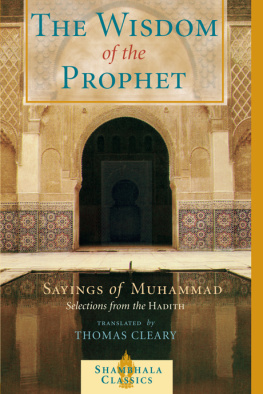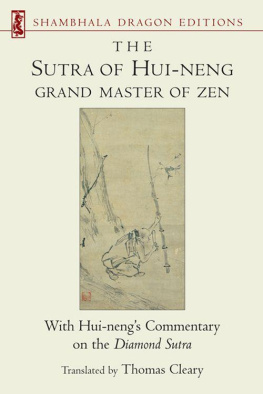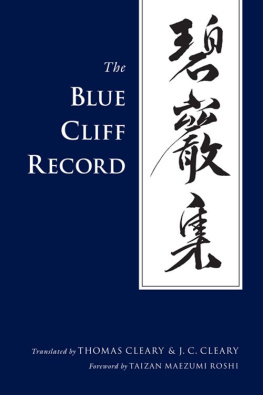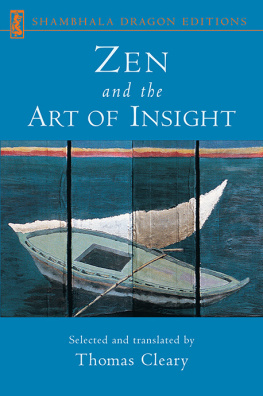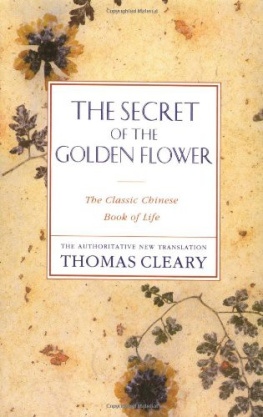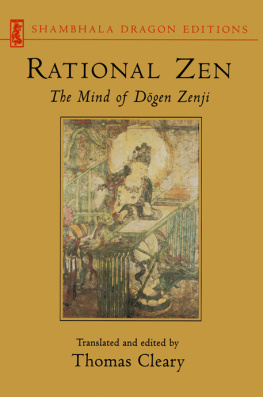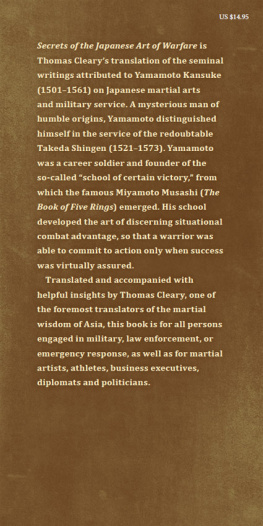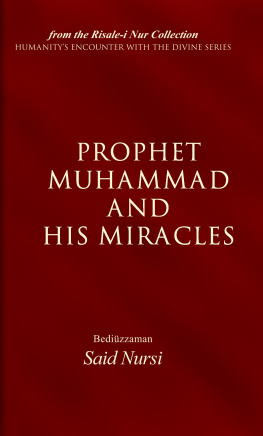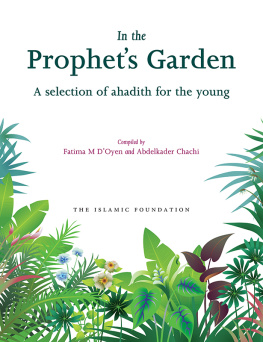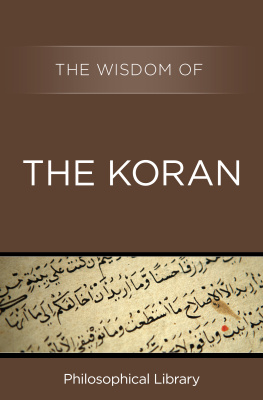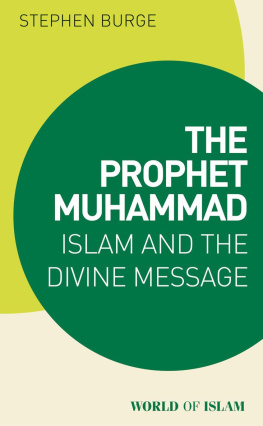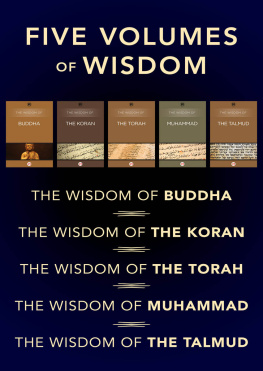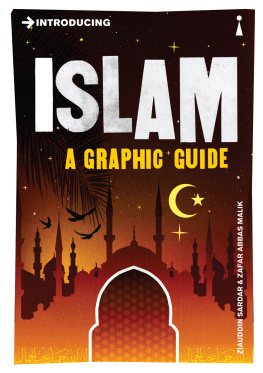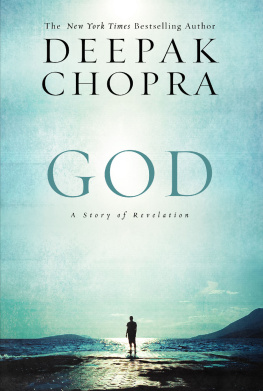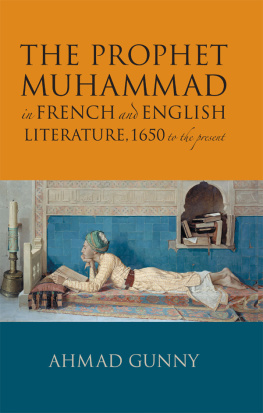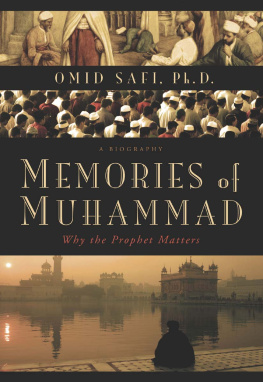ABOUT THE BOOK
The Wisdom of the Prophet contains a rich selection of hadith, or traditional teaching stories based on the words and deeds of Muhammad, that have brought inspiration and guidance to spiritual seekers for centuries. The passages in this collection, chosen for their universal appeal, reveal both Muhammads profound worldly wisdom and his lofty spiritual vision. The Wisdom of the Prophet contains more than two hundred authentic stories and sayings of Muhammad translated by Thomas Cleary, the translator of The Essential Koran.
THOMAS CLEARY holds a PhD in East Asian Languages and Civilizations from Harvard University and a JD from the University of California, Berkeley, Boalt Hall School of Law. He is the translator of over fifty volumes of Buddhist, Taoist, Confucian, and Islamic texts from Sanskrit, Chinese, Japanese, Pali, and Arabic.
Sign up to learn more about our books and receive special offers from Shambhala Publications.

Or visit us online to sign up at shambhala.com/eshambhala.
THE WISDOM of the PROPHET

Sayings of Muhammad
Thomas Cleary

SHAMBHALA
Boston & London
2013
SHAMBHALA PUBLICATIONS, INC.
Horticultural Hall
300 Massachusetts Avenue
Boston, Massachusetts 02115
www.shambhala.com
1994, 2001 by Thomas Cleary
All rights reserved. No part of this book may be reproduced in any form or by any means, electronic or mechanical, including photocopying, recording, or by any information storage and retrieval system, without permission in writing from the publisher.
LIBRARY OF CONGRESS CATALOGING-IN-PUBLICATION DATA
The Wisdom of the Prophet: sayings of Muhammad/translated from the Arabic by Thomas Cleary.
p. cm.
Two hundred and twenty-four authentic Hadith chiefly taken from Bukharis authoritative Sahih, a few from Nawawis popular Riyad al-salihin.
eISBN 978-0-8348-2876-6
ISBN 978-1-57062-825-2 (paperback)
1. HadithTexts. I. Cleary, Thomas F., 1949 II. Bukhari, Muhammad ibn Ismail, 810870. Jami al-sahih. English. Selections. III. Series
BP135.a3w57 1994 94-6188
297.1240521dc20 CIP
This book contains diacritics and special characters. If you encounter difficulty displaying these characters, please set your e-reader device to publisher defaults (if available) or to an alternate font.
M UAMMAD THE PROPHET lived from 570 to 632 CE. A direct descendant of Abraham, the Friend of God, through his son Ishmael, the ancestor of the Arabic people, Muammad was born to a family of the Quraish, the noblest tribe of Arabia. The Quraish were the hereditary custodians of the Kaba, the ancient Cube shrine in Mecca believed to have originally been built by Abraham himself.
The lifetime of Muammad was an era of momentous events throughout the ancient world. China was unified for the first time in centuries, establishing the foundation for the magnificent Tang dynasty. Under Tang Chinese tutelage, Korea was also unified under the powerful Silla kingdom, the new nations of Tibet and Nanchao were founded by ancient peoples in Central Asia, and the first constitution of Japan was promulgated. In India, the great Buddhist king Harsha briefly revived the Gupta empire, while to the west, the Persian empire extended its conquests all the way to Egypt and Asia Minor. Persia was thus also embroiled in conflict with the Byzantine empire, which was itself wrenched by internal unrest and revolt.
Even though Muammad was born to a noble house, he was an orphan and grew up in poverty. In his early years he worked as a shepherd, then later joined the merchant caravans to greater Syria. He was married at the age of twenty-five to a lady named Khadja. Muammad had managed some commercial affairs for Khadja, and it was she who proposed marriage, through the appropriate social channels, because of her admiration for his honesty and noble character.
Muammad hesitated to marry Khadja at first because of his own lack of material means. Eventually the union did take place, and Khadja remained Muammads only wife for the rest of her life. She bore him a daughter, Fima, who later married Al, the Lion of God, one of the Prophets earliest and most valiant companions.
Muammads call to prophecy did not come until he was forty years old, already a mature man with a distinguished reputation in the community. Popularly known by the epithets The True and The Trustworthy, Muammad was not only an exemplary member of society, but also a profoundly spiritual individual who regularly took to contemplative retreat in a mountain cave outside the city.
It was during such a retreat that revelation first came to him, through the archangel Gabriel, who embraced the Prophet in a powerful grip and told him, Recite! Recite in the name of your Lord, Who created: Who created humankind from a clot of blood. Recite, for your Lord is most generous, Who taught by the Pen, taught humankind what it did not know (96:15).
Far from becoming inflated by such an experience, Muammad doubted himself. Rushing back to his wife, he told her he feared he was going mad, or else becoming a poet. She brought the Prophet to a cousin of hers, who was a Christian. This man confirmed that the revelation vouchsafed to Muammad was from the same source as the messages conveyed by Moses and Jesus. He also assured Muammad that as a prophet he would be opposed and ostracized when he made the revelation public, as had indeed happened to so many prophets in history.
As revelations progressed, the magnetism of the message drew people to the new religion of al-Islm, Surrender to the Will of God. While one of the subsequent historical effects of Islam was to reunite the long-isolated Arabic people with the rest of the world, the original Islamic community surrounding Muammad already included people of African, Byzantine, and Persian origins as well as native Arabs. The new community accepted people of all classes, free or slave, uniting them in a common belief in the oneness of reality.
For the first three years, the teaching had been carried out in private, but eventually Muammad was instructed to take the message public. As had been predicted by the Christian Arab who originally recognized the message as Prophetic, for many years Muammad and the other Muslims were severely persecuted, until they finally emigrated from Mecca to Medina.
The Muslims fought back against oppression, outnumbered and outgunned though they were. Eventually, after inflicting many indignities and hardships on the Muslims, the opposition gave up, unable to break the will of the growing community of believers. Ten years after his emigration, shortly before his death, Muammad led a group of tens of thousands of pilgrims peacefully into Mecca for the greater pilgrimage (al-ajj).
Muammad viewed the religion of Islam as the completion of the Prophetic tradition beginning with Adam and continued by Noah, Abraham, Moses, and Jesus. This idea is expounded both in the Qurn, the revealed Book of Islam, and in the adth, or traditional accounts of the Prophets sayings and actions.
The Qurn and the adth are the two main literary sources for Islam. Naturally, the Qurn is considered preeminent as a revelation from God. The adth also include some extra-Quranic revelations from God (in the Sacred adth) but mostly recount the words and deeds of the Prophet himself, which are called the Noble adth. The adth is the basis of Sunna, or Prophetic Custom, which clarifies the teaching of the Qurn in practical matters of inward and outward conduct.
Next page
